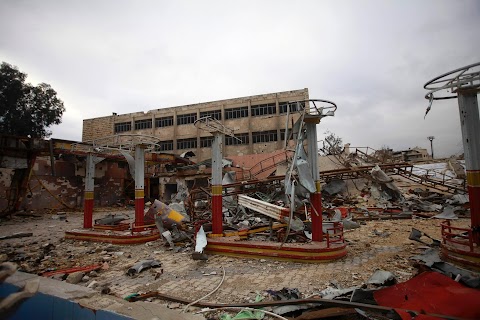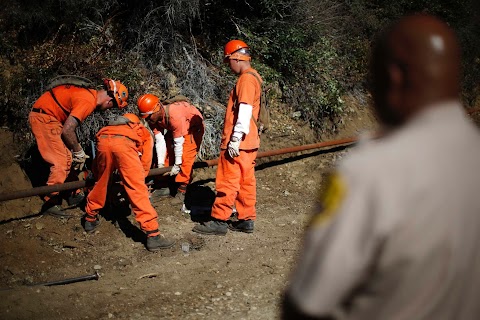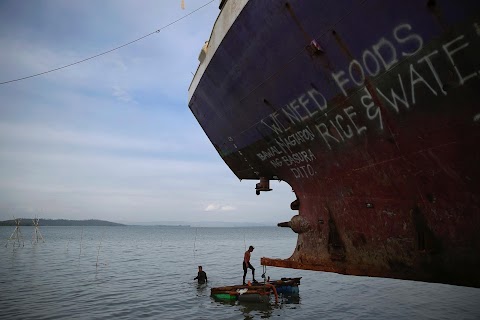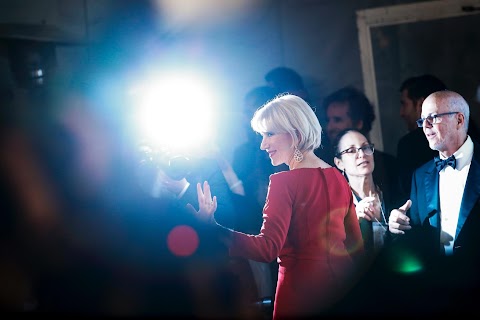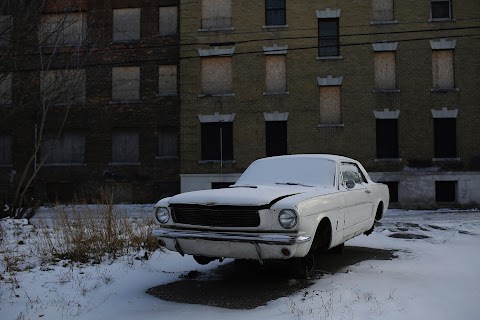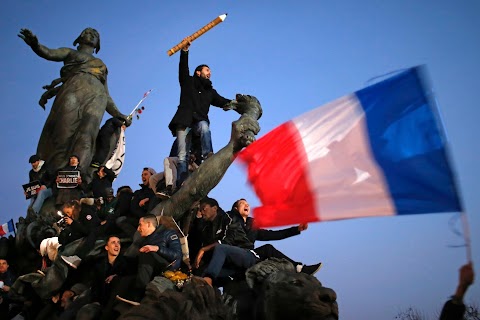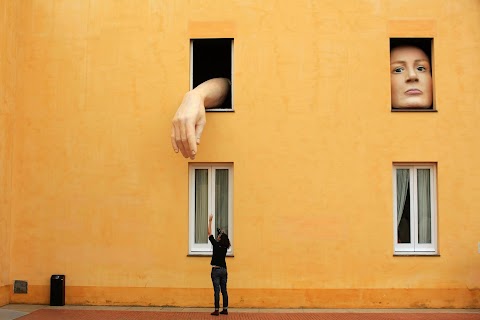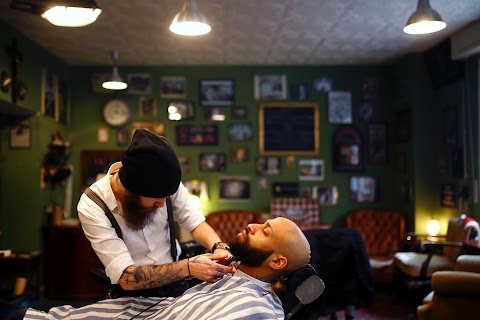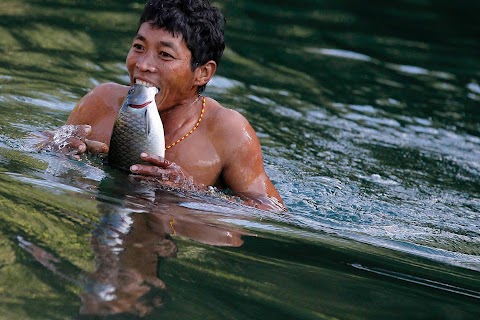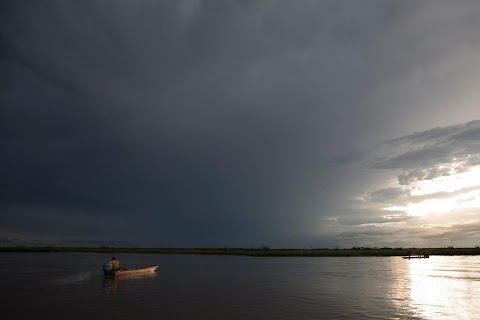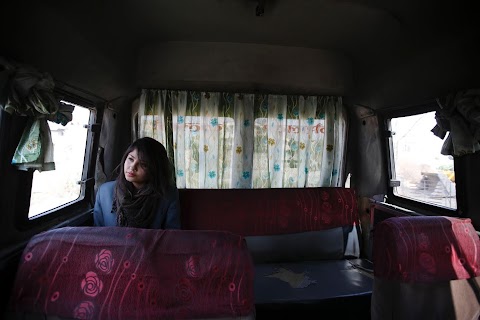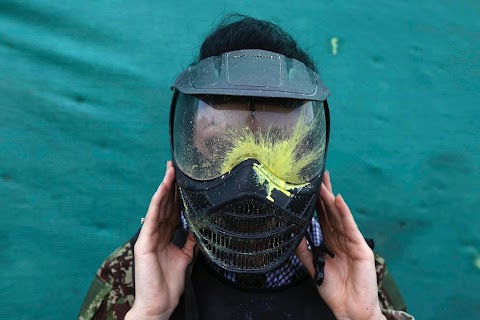
Auschwitz survivors - 70 years on
 Kacper Pempel
Kacper Pempel  Laszlo Balogh
Laszlo Balogh
Eighty-nine-year-old Auschwitz survivor Jadwiga Bogucka, pictured above holding a photograph of herself at the time, was 19 when she and her mother were sent from their house to a camp in the Polish city of Pruszkow and then by train to Auschwitz.
About 1.5 million people, most of them Jews, were killed at the Nazi camp which has became a symbol of the horrors of the Holocaust and World War Two, which ravaged Europe.
Bogucka and her mother were among about 200,000 inmates who survived Auschwitz, liberated by Soviet Red Army troops on January 27, 1945.

German forces occupying Poland set up Auschwitz on an isolated 40 sq km site in southern Poland in 1940 as a labour camp for Polish prisoners, gradually expanding it into a vast labour and death camp.
Bogucka, who was registered with camp number 86356, is among survivors who posed for portraits and recounted their stories to Reuters photographers in Poland and Hungary ahead of the 70th anniversary of the liberation of the camp this month.

Originally from Myszkow, Marian Majerowicz, 88, was 17 when he was sent to Auschwitz-Birkenau. At the camp he was briefly reunited with his father, who told him that his mother and younger brother were both killed in the gas chambers. Majerowicz's father didn't survive the war.

During the Warsaw Uprising, when now 80-year-old Elzbieta Sobczynska was 10, she was sent with her mother and brother to Auschwitz-Birkenau.
There they were separated into blocks for woman, girls and boys. Sobczynska said that she was robbed of her childhood, and lost the chance to experience a different kind of life.

Lajos Erdelyi, 87, posed with a drawing by one of his campmates.
Erdelyi was sent to Auschwitz in May 1944 and was later moved to another camp. When he was freed he weighed under 30kg, but tried to walk home. He collapsed, and was taken to a hospital by a farmer

Eighty-two-year-old Halina Brzozowska was 12 when she and her family were sent to a camp in Pruszkow. Together with her 6-year-old sister she was taken by train to Auschwitz.
Brzozowska said it was hard to talk about what had happened to them, that they were taken from their homes, family and lost their childhood.
"I quickly found very open people who wanted to be photographed and to share their stories"
On my first meeting with survivors of Auschwitz, I was really stressed.
How could I combine being a journalist, asking questions about their tragedy, and at the same time concentrate on getting good pictures?
But I quickly found very open people who wanted to be photographed and to share their stories, as difficult as that was. With some, I spent a couple of hours.
My colleague Laszlo Balogh from Hungary and I had decided to photograph Auschwitz survivors in Poland and Hungary ahead of the 70th anniversary of the camp's liberation this month, and to shoot the portraits in the same style.
I arranged to meet the survivors in their homes and to spend a proper amount of time with them, mainly talking and listening rather than trying to shoot their portraits.
But halfway through the assignment I was invited to a weekly meeting of a survivors' association, who suggested we set up a "studio" at their premises.
Then the hard part began. Even though I knew it was not the first time these people were sharing their stories, it was not easy for them to bring up memories and photographs of their tragic survival.
It really was a difficult day. After listening to those terrible stories, more than five in one day, I was exhausted -- physically, but more so mentally.
I thought I could expect what I was going to hear but I don't think anyone could be prepared for such stories, and this many in one go.
Stories of survivors, stories of people who were children at the time.

Slideshow

Elzbieta Sobczynska, 80, holds her father's watch, which was kept by her brother while they were in the camp.

Janina Reklajtis, 80, holds a photo of herself taken during the war. She was 12 when she and her mother were sent to Auschwitz.

Zofia Wareluk, 70, was born in Auschwitz two weeks before the camp was liberated. Her mother was sent to the camp when she was four months pregnant.

Bogdan Bartnikowski was 12 when he and his mother were sent to Auschwitz. After the war Bartnikowski worked as a pilot, then became a journalist and writer.

Bartnikowski holds his family picture from wartime.

Stefan Sot, 83, was 13 when he was sent from his home to a camp in Pruszkow, then to Auschwitz and later to a labour sub-camp, where he worked in a kitchen.

Sot, 83, holds his picture of himself as a young boy.

Imre Varsanyi, 86, holds a picture of his fellow survivors. He did not talk about Auschwitz for 60 years because he felt ashamed for having lived.

Erzsebet Brodt, 89, recalling her journey, said those who were sick or about to give birth were forced out and put into one wagon. When the wagon was opened in Auschwitz they were all dead.

Brodt, 89, holds a picture of her family, who were all killed in the camp.

Jerzy Ulatowski, 83, was taken by train to Auschwitz when he was 13 and in January 1945 he managed to escape with his family, thanks to a power fault in the barbed wire surrounding the camp.

Danuta Bogdaniuk-Bogucka was 10 when she was sent to Auschwitz camp with her mother, where they were separated.

Jacek Nadolny, 77, was seven when he was sent with his family to Auschwitz by train. In January 1945 the family was moved to a labour camp in Berlin

Nadolny, holds compilation of family pictures from wartime.

Eva Fahidi, 90, holds a picture of her family, who were all killed in the concentration camp.

Henryk Duszyk, 80, was 10 when he was sent to Auschwitz with his family. They were separated and Duszyk only saw his father once before he was killed.

Maria Stroinska, 82, was 12 when she and her sister were sent from their house to a camp in Pruszkow, and then alone to Auschwitz.

Stroinska holds her family picture from before the war.

Barbara Doniecka, 80, was 12-years-old during the Warsaw Uprising when she was sent to Auschwitz with her mother.

Doniecka holds a picture of herself from 1944.



